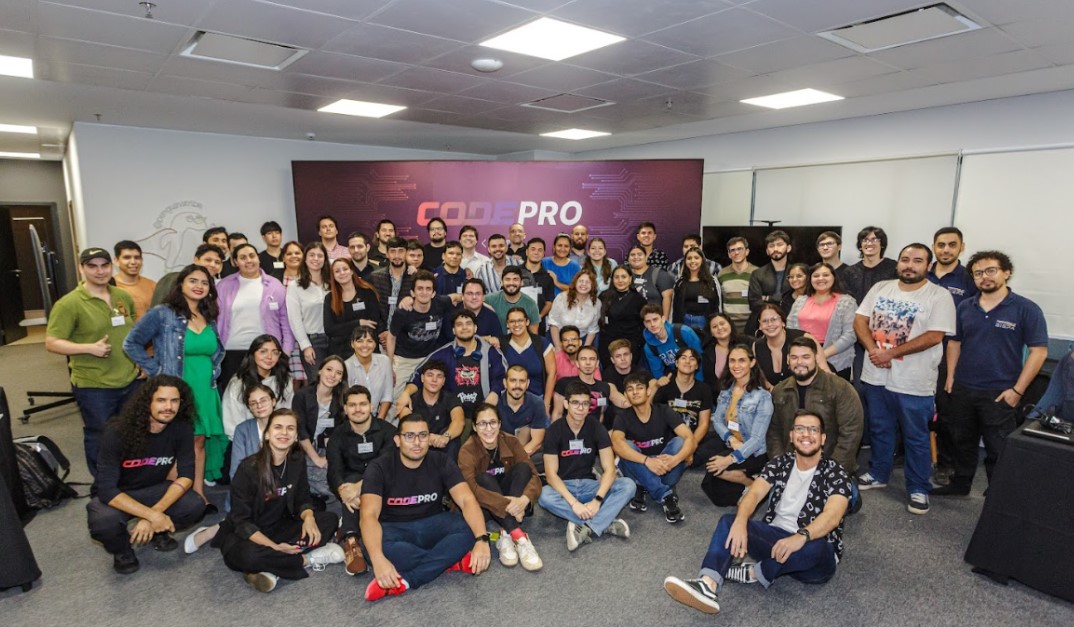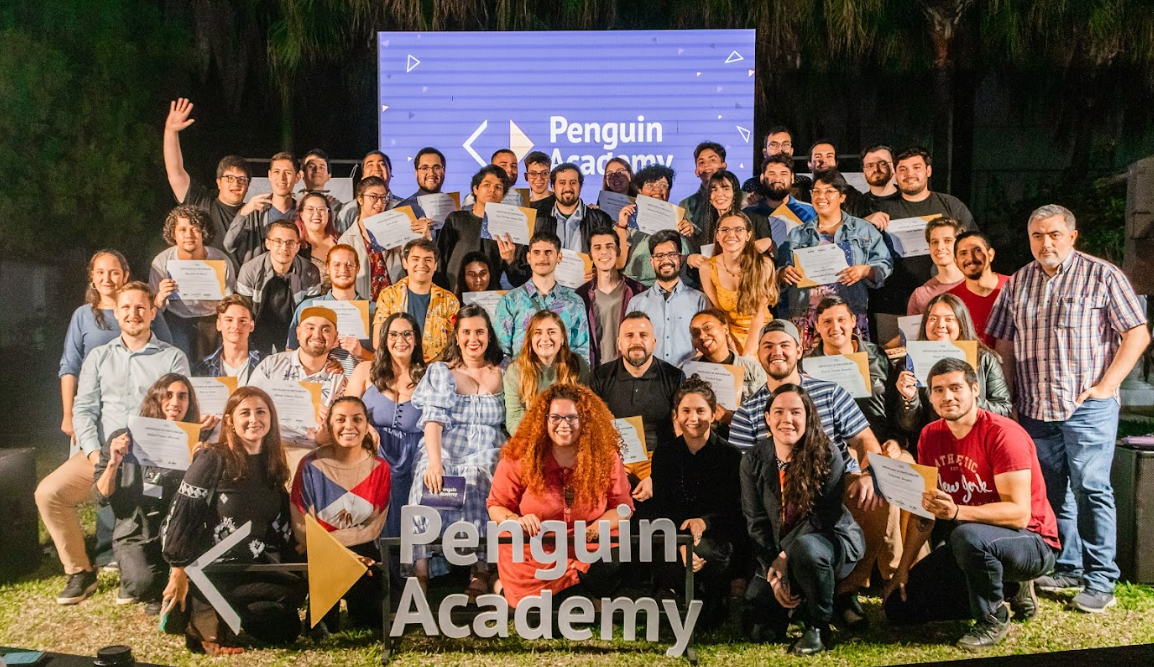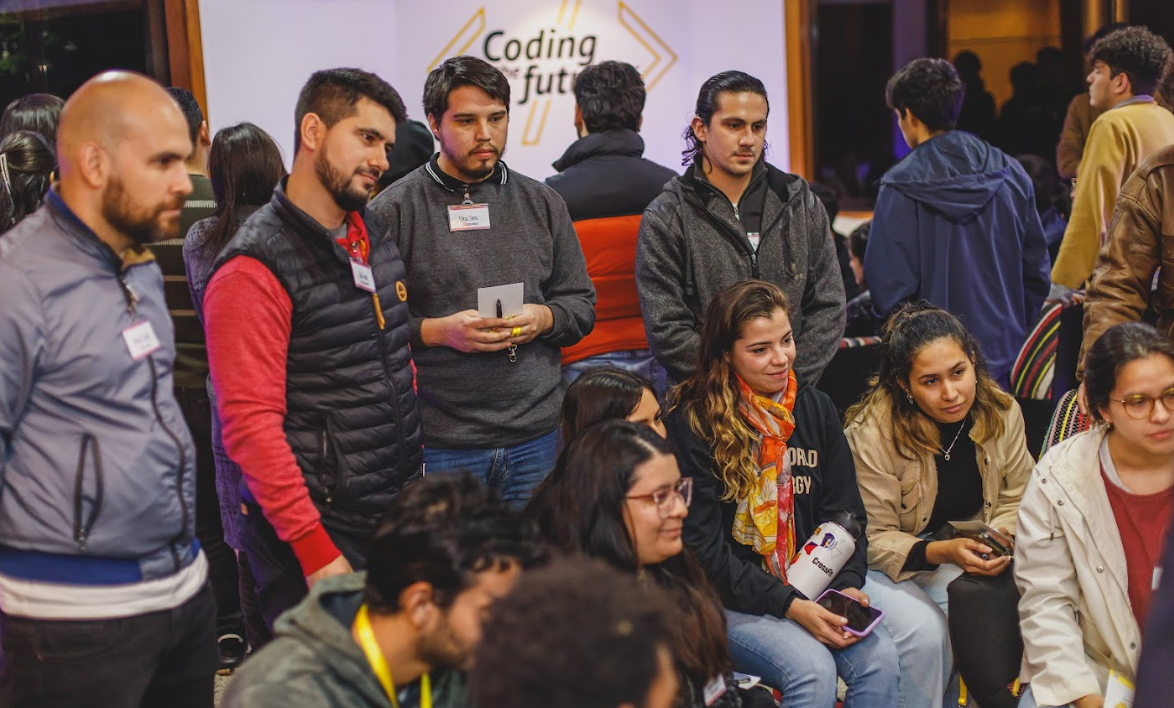CodePRO 2025: The Program Driving Inclusion of Paraguayan Workers in the Bitcoin Industry

Paraguay is making its way onto Latin America’s tech map with an initiative that connects energy infrastructure, digital talent development, and real job opportunities.
This is CodePRO 2025, a program led by Penguin Academy, the educational arm of Penguin Group. In less than two years, it has transformed the lives of dozens of young Paraguayans and presents an innovative model of social development powered by renewable energy.
The initiative is based on a concept the organization calls the "Penguin Circle", in which the education and training of young Paraguayans is funded by revenue generated from a Bitcoin mining data center operated by Penguin Group.
According to Delia Garcete, CEO of Penguin Academy, the educational program guarantees students "a future in the tech industry," one of the most in-demand and globally promising fields.
"We use clean energy to produce technology; that technology creates value, and we reinvest that value in people. So, what begins as electricity from Itaipú ends up as human potential," Garcete summarizes. In a country with one of the highest hydroelectric capacities in the world, Penguin Group’s strategy aims to turn this comparative advantage into a driver of social transformation.
Inclusion from Zero: No Technical Requirements Needed
One of CodePRO’s pillars is its inclusive access policy. No prior experience in technology or specific knowledge is required. The program values curiosity, commitment, and the willingness to learn.
Garcete recalls the case of a participant who joined the program without owning a computer.
“He thought programming was impossible. But he started from scratch, with a simple ‘Hello, world’, and broke the mental barrier that separated him from the tech world. That’s exactly what we’re looking for: people ready to transform their present,” she says.
In the first weeks, instructors observe participants’ performance, resilience, and adaptability. Beyond technical skills, the focus is on holistic development, says Garcete.
Overall, CodePRO combines intensive technical training with the development of soft skills. It starts with “Day 0,” an introductory phase to digital tools. Then, participants enter a technical bootcamp, followed by the “Dive,” a key stage where they solve complex challenges independently.

Changing Trajectories
Over the course of eight months, the program covers Python and JavaScript programming, data structures, web development, SQL, modern frameworks, data science, and artificial intelligence. It also includes workshops on communication, teamwork, personal organization, and empathy.
“CodePRO doesn’t just change life paths; it changes how people think, interact, and see themselves. So, when we talk about results, we’re not only talking about employability—we’re talking about lives being rewritten with more opportunities, more tools, and more confidence,” says Garcete.
Since its launch in 2024, the program has received over 1,000 applications. Among graduates, 98% report being satisfied with their experience, and 85% are already employed in the tech industry. Additionally, there are now more than 15 partner companies that trust Penguin Group’s educational model.
One standout story is Olaf, a 29-year-old with a background in event production. Today, he works in tech, handles multiple programming languages, and has discovered new ways to collaborate and connect.
When he joined CodePRO, he didn’t just learn to program in Python, JavaScript, and C++; he also learned what it means to work in a team, to trust others, and to keep pace with challenging projects.
“When we talk about outcomes, we’re not just referring to jobs. We’re talking about lives being rewritten—people gaining confidence, autonomy, and a new outlook on the future,” Garcete affirms.

Fair Access Model and Regional Vision
One of the most innovative features of the program is its use of the Income Share Agreement (ISA). Through this model, students don’t pay during their training. They only begin to repay a percentage of their income once they secure a job in tech. This approach helps eliminate financial barriers and opens opportunities in traditionally excluded communities.
“The entire CodePRO 2.0 cohort chose this model. That speaks to the real need out there. We can’t talk about inclusion without thinking about fair access,” says Garcete.
Currently, Penguin Academy collaborates with social organizations, businesses, and local governments to expand its reach across more regions in the country.
Looking ahead, there are plans to scale CodePRO beyond Paraguay. The organization is already in talks with regional companies and multilateral agencies to adapt the model to other countries with similar energy infrastructures.
“Our vision is to build a network of local digital talent with global impact. Paraguay has everything it takes to become a leader in tech training with social impact. And CodePRO is just the beginning,” Garcete concludes.

